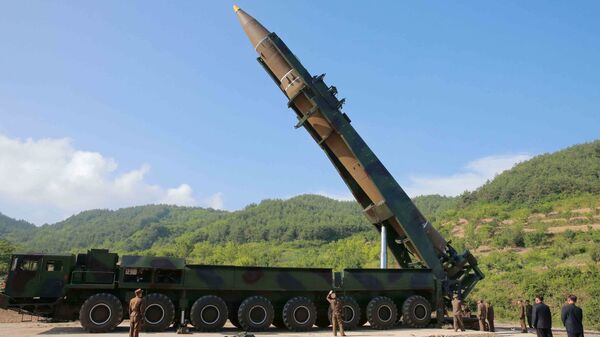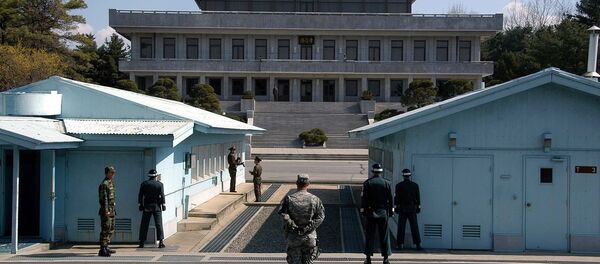Rodong Sinmun, the official newspaper of the Central Committee of the Worker’s Party of Korea, headed by national leader Kim Jong-un, slammed Defense Secretary James “Mad Dog” Mattis as the "peerless bellicose element well known to be a 'war-maniac' and 'rabid dog' in the overseas aggression wars.
"It is ridiculous, indeed, that such warmonger talked about 'non-military counteraction' and 'diplomatic solution.'"
In June, Mattis called the Democratic People’s Republic of Korea (DPRK) the "most urgent" national security threat to the US, writing in a statement to the House Armed Services Committee, "The regime’s nuclear weapons program is a clear and present danger to all, and the regime’s provocative actions, manifestly illegal under international law, have not abated despite United Nations’ censure and sanctions."
His comments followed the expansion of targeted sanctions leveled at Pyongyang by the UN Security Council, in response to the DPRK’s continued ballistic missile tests.
US President Donald Trump has said that Washington will no longer use the tactic of "strategic patience" with North Korea as practiced by his predecessor Barack Obama, and that the "US has a very strong and definite scenario" to mount a military strike against the isolated nation.
A separate Rodong Sinmun article said that such a move would be a "very foolish act of precipitating self-ruin" that would bring the “empire of America” to a “shameful end.”
Before a test missile launch earlier in July, the North also decried South Korea as "puppet military warmongers" for their continued cooperation with Washington, especially in allowing the US to place its Terminal High Altitude Area Defense (THAAD) system in their country.
Although Trump took a decidedly cool stance toward the North in the early days of his presidency, the saber-rattling between Washington and Pyongyang has intensified over the last few months.
The North claims that the Hwasong-14 projectile it tested earlier this month is capable of carrying a large nuclear warhead, and experts posit that within two years Pyongyang could develop a missile capable of striking major targets on the US West Coast, including San Diego, California.
Although the US is much better equipped for combat than North Korea, a recent report by Newsweek suggest that a war between the two nations would "likely result in 1 million dead, and nearly $1 trillion of economic damage."





